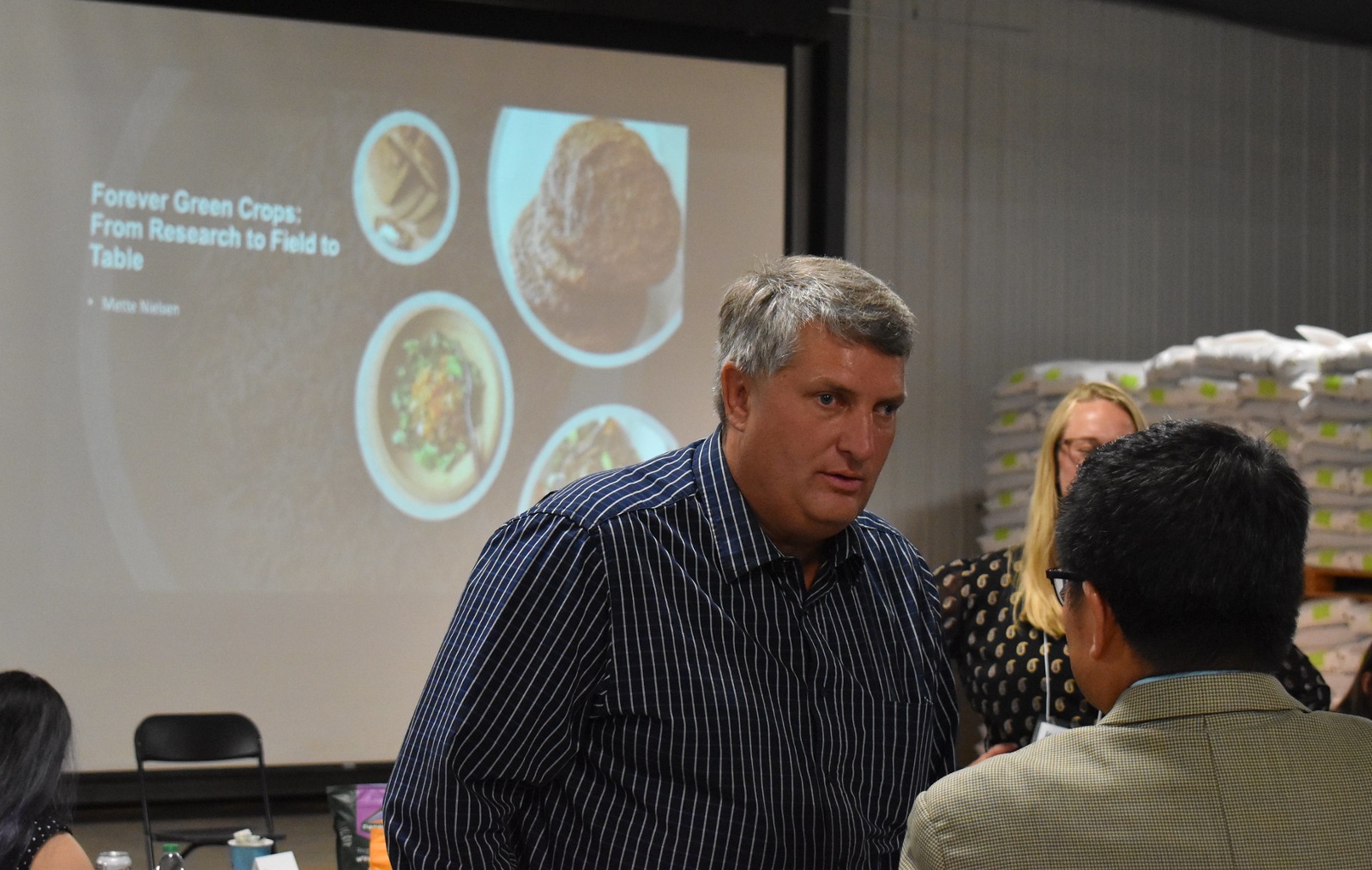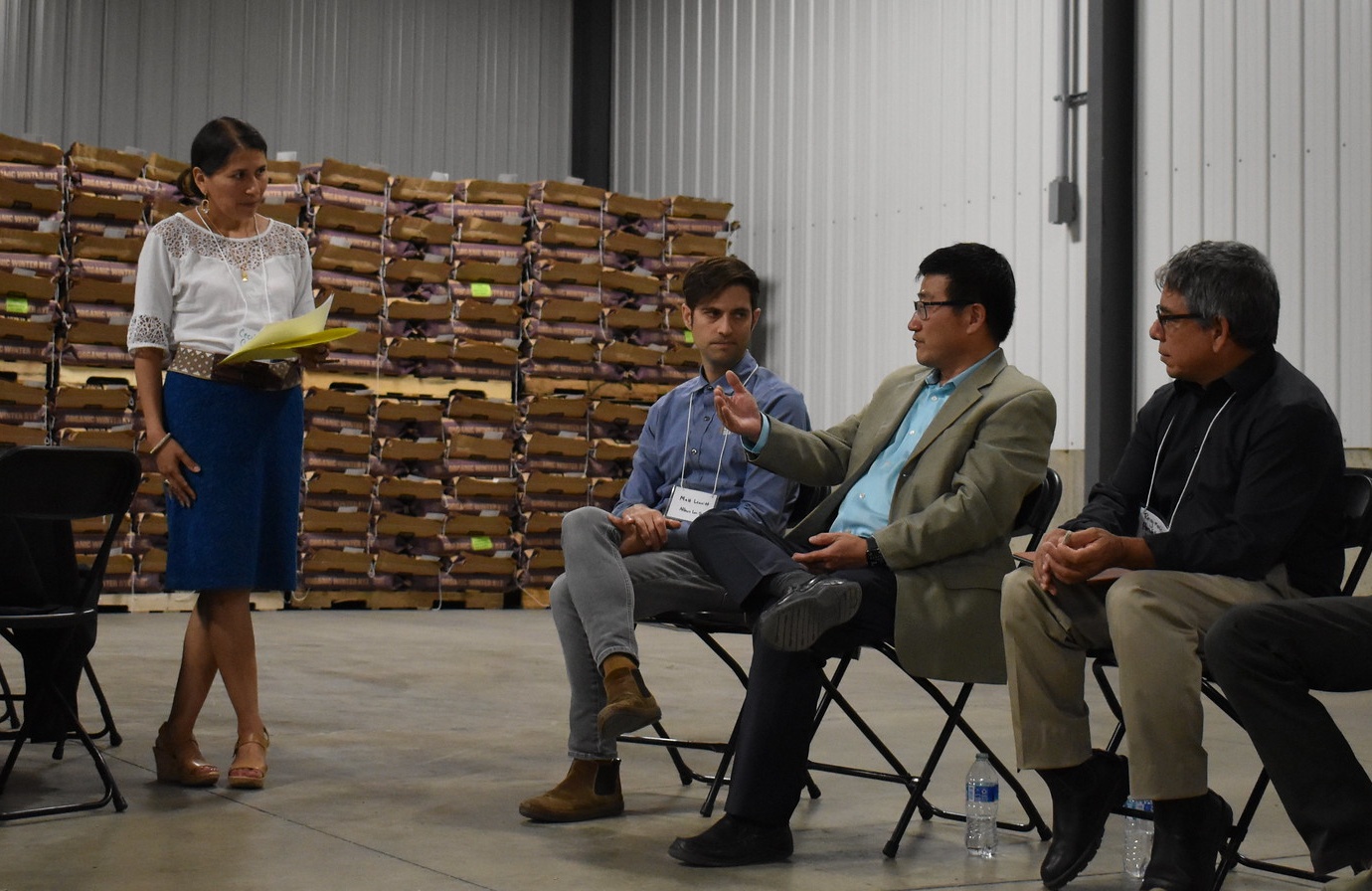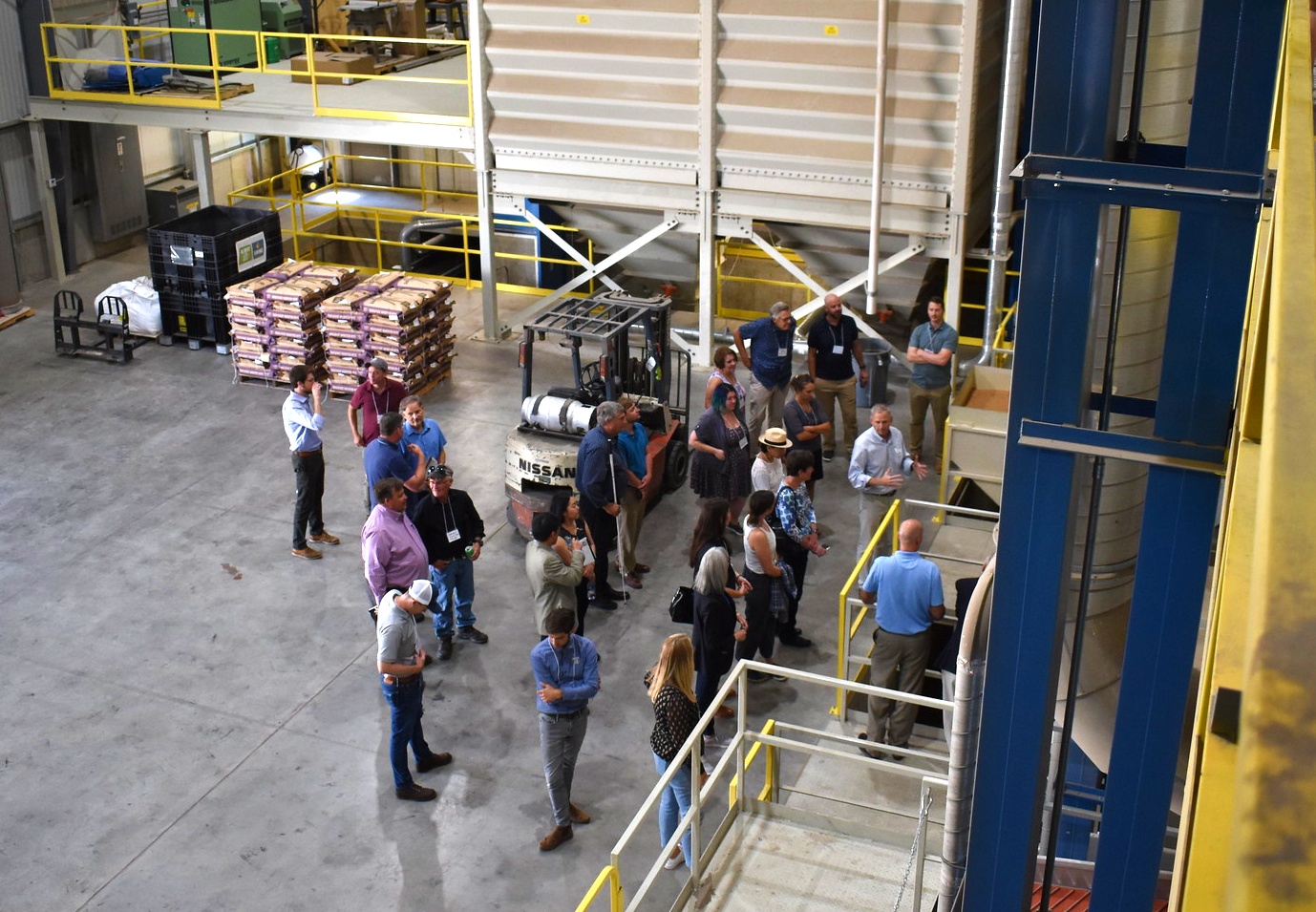'Very excited about the prospects for this': Clean-water crops take center stage
Event attendees pose for a group photo following a facility tour at Albert Lea Seed.
We describe the clean-water crops emerging from the Forever Green Initiative as win-win, with benefits aplenty for both the environment and farmers.
It turns out Minnesota's top agriculture official feels similarly.
"I am very excited about the prospects for this," Commissioner Thom Petersen told a crowd of state lawmakers, growers, researchers and business leaders at an event in Albert Lea last month.
The group had gathered at Albert Lea Seed to learn about the rapidly expanding market for these continuous living cover crops, and to get a firsthand look at the role Minnesota's businesses play in getting them from University of Minnesota labs to farm fields across the state. FMR, as a member of the Forever Green Partnership, helped organize the afternoon event, which included an agricultural field presentation and a behind-the-scenes tour of the facility.
 Sen. Torrey Westrom (R-Elbow Lake) is chair of the Minnesota Senate's Agriculture and Rural Development Finance and Policy Committee.
Sen. Torrey Westrom (R-Elbow Lake) is chair of the Minnesota Senate's Agriculture and Rural Development Finance and Policy Committee.
On full display was the same bipartisanship that resulted in new funding for the Forever Green Initiative and value chain development grants this past legislative session. In attendance were Sens. Torrey Westrom (R-Elbow Lake) and Gene Dornink (R-Brownsdale), as well as Reps. Ginny Klevorn (DFL-Plymouth), Samantha Vang (DFL-Brooklyn Center) and Peggy Bennett (R-Albert Lea).
The state legislators engaged in the discussion with presenters and panelists, exploring the current state of these crops, recent successes and the road ahead.
"It's not always easy with new seeds. Or commercializing anything new," Colin Cureton, director of adoption and scaling at the Forever Green Initiative, told the crowd. Noting the support from legislators and business partners, he highlighted the "tremendous" interest of late in oilseeds such as winter camelina.
 Xinmin Deng, middle with teal shirt, answers a question from facilitator Cecilia Calvo, director of advocacy and inclusion with Minnesota Environmental Partnership. To his right is Matt Leavitt, agronomist and organic team lead at Albert Lea Seed; to his left, Reginaldo Haslett-Marroquin, founder of Regenerative Agriculture Alliance.
Xinmin Deng, middle with teal shirt, answers a question from facilitator Cecilia Calvo, director of advocacy and inclusion with Minnesota Environmental Partnership. To his right is Matt Leavitt, agronomist and organic team lead at Albert Lea Seed; to his left, Reginaldo Haslett-Marroquin, founder of Regenerative Agriculture Alliance.
A winter annual, camelina can be planted late in the growing season — providing living cover on the soil from fall through the following spring, months the ground would normally be bare and a significant source of runoff pollution.
Xinmin Deng, a senior principal scientist at Cargill, described winter camelina as a "Cinderella crop."
"Camelina is a good crop for biofuel," he said. Not only that, it also shows real promise in both the forage, food and bioplastics spaces.
 Albert Lea Seed President Mac Ehrhardt gives attendees a behind-the-scenes tour of the business' new seed processing facility.
Albert Lea Seed President Mac Ehrhardt gives attendees a behind-the-scenes tour of the business' new seed processing facility.
The combination of rapid crop advancements and across-the-aisle support has generated recent media attention, on the heels of last spring's New York Times feature.
The legislative event was featured in the news by the Rochester ABC affiliate KAAL and Forum News Service's Agweek. Shortly after that, the Star Tribune published a long feature about Forever Green, exploring how "year-round crops could reduce farm pollution in the Mississippi River."
You can help
FMR River Guardians represent a critical voice in the continued development of these crops!
Sign up to become a River Guardian and we'll let you know when important river issues arise. We make it quick and easy to contact decision-makers and make your voice heard. River Guardians are also invited to special events, including happy hours, to learn more about important legislative and metro river corridor issues.
